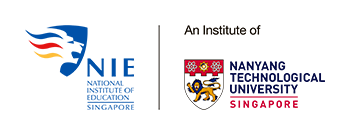
|
|


|

|
|
|
- |
|
|
An introduction to curriculum design and development. |
|
Course synopsis |
|
The process of analysis will reveal that curricula are by necessity always incomplete and imperfect—everything that is included (topic, activity, question, component, material, assessment, etc.) means that something else has been excluded. This being the case, students will suggest refinements to the curriculum they have analysed, based on their understanding of the needsThis course is an introduction to curriculum development. The underlying framework for the course is that curriculum building is a process that requires ongoing study and reflection about curriculum and the practice of teaching. Central and perennial curriculum questions explored are: What knowledge is of most value and worth? How is the learner and learning viewed? What is the role of teachers in creating and enacting curriculum? The process of analysis will reveal that curricula are by necessity always incomplete and imperfect-everything that is included (topic, activity, question, component, material, assessment, etc.) means that something else has been excluded. Th is being the case, students will suggest refinements to the curriculum they have analysed, based on their understanding of the needs of learners, the socio-political milieu, and the moral and ethical dimensions of schooling. |
|
View More |
Objective |
|
At the end of the course, students will be able to:
• articulate theoretical concepts essential to interpreting, enacting and contextualizing curriculum design and development; • suggest how theories and perspectives of education function within discourses of teaching, learning and assessment; • analyse and critique current curricula; and • design curricula that either “mend the gaps” in an existing curriculum; or extend between curricula (e.g. integration of disciplines); or address the null (something new). |
Outline |
|
The following topics will be explored:
• Curriculum Decisions: What is involved in curriculum designing? • Curriculum Orientations: Visions of curriculum and conceptualizations of the “educated” person • Unpacking each of the commonplaces: o the learner and learning o the discipline o the milieu o the teacher • The place of Assessment in curriculum making |
Course fee |
||||||||||||||||||||||||||||||||||||||||||||||||||||||
*MOE Educators include MOE & Direct Hire Staff from Independent, Specialised Independent and Specialised Schools. |
Pre-requisite |
|
A good Bachelor's degree from a recognised university.
● A teaching qualification such as the NIE’s Postgraduate Diploma in Education or equivalent portfolio of professional learning certification/diploma in education practice. ● At least two years of experience in teaching or professional experience in educational contexts. |
Who should attend |
|
All educators
|
Overview |
|||

|
Duration: |
52 hours |
|

|
Course date(s): |
- |
|

|
Subject: |
|
|

|
Who should attend: |
All educators |
|

|
Instructor(s): |
- |
|

|
Enquiries: |
- |
|
Share with a friend |
|||




|
|||
You might be interested in... |
Other related courses: |
|
|
You might be interested in... |
Programmes accredited to: |
|
|
Show more programmes |